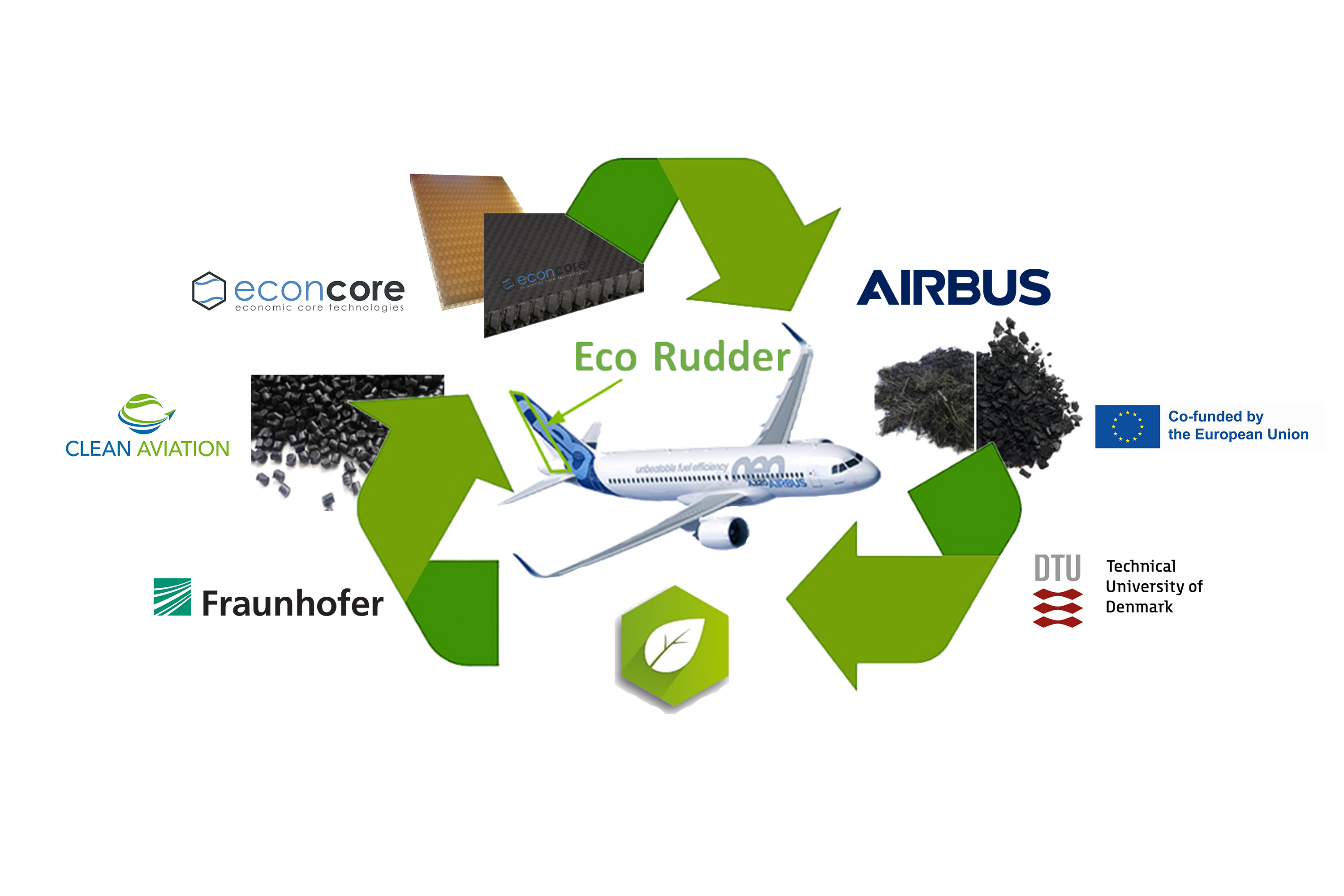EconCore works with Airbus, the Technical University of Denmark (DTU) and Fraunhofer on a new technology for a more sustainable type of rudder for short and medium-range aircraft, based on thermoplastic honeycomb sandwich composites.
Composite sandwich construction has proven to be a very efficient structural concept in aircraft structural parts. In line with today’s sustainability requirements, more sustainable composites are expected to replace conventional thermoset materials such as phenolic resin honeycombs and epoxy laminates. This improvement in sustainability has to be achieved without compromising on mechanical requirements such as damage tolerance in extreme environments and sufficient robustness and structural integrity against service loads and possible damages. A maximum feasible level of recyclability of the thermoplastic constituent materials, must also be ensured.
Airbus, Fraunhofer, DTU and the sandwich core supplier EconCore will develop a new generation of more sustainable rudder structure based on potentially recyclable thermoplastic materials. This partnership forms part of the project "FASTER H2" led by Airbus and funded by the European Union's Clean Aviation Research Program under Horizon Europe. The four partners will collaborate on this activity called “EcoRudder”. The project focuses on the development of a new generation rudder structure for commercial aircraft. It is envisaged that the rudder structure will be redesigned and replaced with thermoplastic materials that have the potential to be recycled after the aircraft has been decommissioned.
Within the scope of the project, thermoplastic honeycomb sandwich structures will be produced and evaluated against the requirements for the rudder, and a recycling concept for the panels will be demonstrated. Beside the extensive testing and analysis to ensure that the materials meet all requirements for a certification in a aircraft structural component, also a detailed life-cycle analysis (LCA) will be carried out to confirm the reduced environmental footprint of the new thermoplastic honeycomb sandwich rudder.
